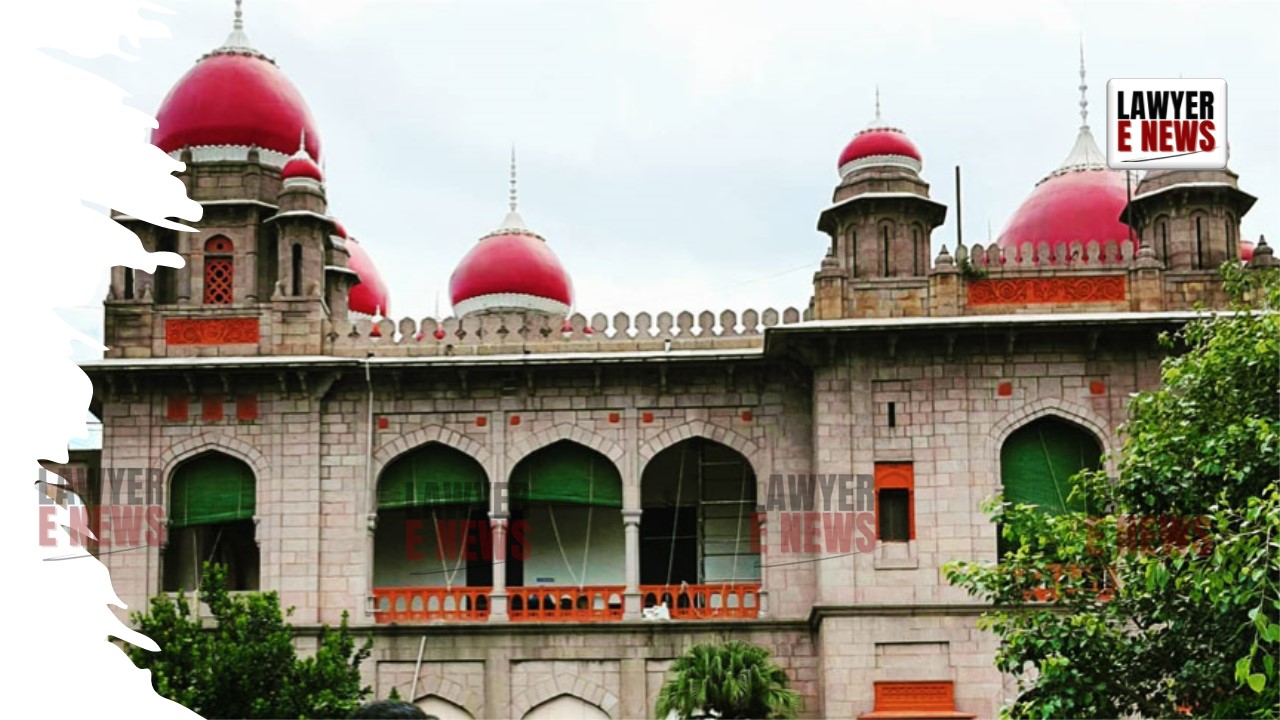-
by Admin
15 February 2026 2:36 AM



Telangana High Court dismisses challenge to Rule 18 of the Andhra Pradesh (Telangana Area) Abolition of Inams Rules, 1975, asserting that the rule is consistent with Section 24 of the Act. The Telangana High Court, presided over by Chief Justice Alok Aradhe and Justice J. Sreenivas Rao, dismissed a writ petition challenging the constitutionality of Rule 18 of the Andhra Pradesh (Telangana Area) Abolition of Inams Rules, 1975. The petitioners argued that Rule 18 was contrary to Section 24 of the Andhra Pradesh (Telangana Area) Abolition of Inams Act, 1955. The Court ruled that Rule 18 aligns with the legislative framework and confirmed the jurisdiction of Revenue Divisional Officers (RDOs) to issue Occupancy Rights Certificates (ORCs) under Section 10 of the Act.
Petitioner Smt. N. Indiramma, a 64-year-old widow from Mahabubnagar district, challenged Rule 18 of the 1975 Rules, arguing that only a District Collector, not a Revenue Divisional Officer, could issue Occupancy Rights Certificates. Her husband, late N. Sreenivas Chary, owned 7.10 acres of agricultural land. After his death, she sought to mutate her name in the revenue records but found that the RDO had issued ORCs for the same land in favor of respondents on the basis of a simple sale deed. The petitioner’s subsequent appeals and revisions were unsuccessful, leading her to file the writ petition questioning the legality of Rule 18.
Competency of Revenue Divisional Officer: The primary contention was that the Collector, under Section 24 of the Act, alone had the authority to issue ORCs and that Rule 18, by delegating this power to RDOs, exceeded the statutory mandate. However, the Court pointed out that Section 2(1)(a) of the Act allows the government to authorize officers not below the rank of Deputy Collector to perform the functions of the Collector. The Court emphasized that, as per notifications issued by the government, RDOs have been empowered to discharge the Collector's duties under Section 10, including issuing ORCs.
Consistency with Section 24 of the Act: The petitioners argued that Rule 18 contradicts Section 24 of the Act, which prescribes the District Collector as the appellate authority. They maintained that allowing an RDO to function as the primary authority created a conflict. The Court, however, disagreed, stating that the rule-making authority has the power to delegate such functions and that Rule 18 is consistent with the Act's provisions. It noted that appeals from an RDO’s decision could be made to the District Collector, preserving the appellate structure under the Act.
The Court extensively analyzed the statutory provisions and prior judgments to assert that Rule 18 does not violate the legislative intent of the Inams Act. The judgment referred to relevant case law, including Roop Chand vs. State of Punjab and Indore Vikas Pradhikaran vs. Pure Industrial Coke & Chemicals Ltd., to demonstrate that delegated powers exercised by officers like RDOs still operate under the aegis of the principal authority, in this case, the Collector.
Chief Justice Alok Aradhe, while delivering the judgment, observed: “The provisions of the Act and the Rules, when read together, make it clear that Rule 18 of the 1975 Rules is in consonance with Section 24 of the Act. The delegation of powers to the RDO does not violate the statutory scheme, and the petitioners’ challenge on this ground is untenable.”
The Telangana High Court's dismissal of the writ petition underscores the legal validity of Rule 18 of the Andhra Pradesh (Telangana Area) Abolition of Inams Rules, 1975. By confirming the RDO’s jurisdiction under the Act, the Court has reinforced the broader statutory scheme for the adjudication of occupancy rights. This decision will likely impact future cases involving land disputes under the Inams Abolition Act, reinforcing the legitimacy of delegated powers in the revenue administration.
Date of Decision: September 6, 2024
Smt. N. Indiramma vs. State of Telangana
